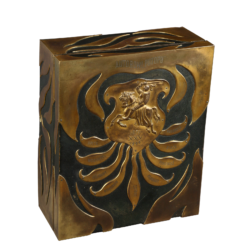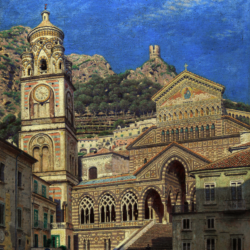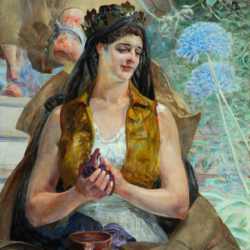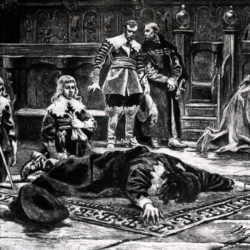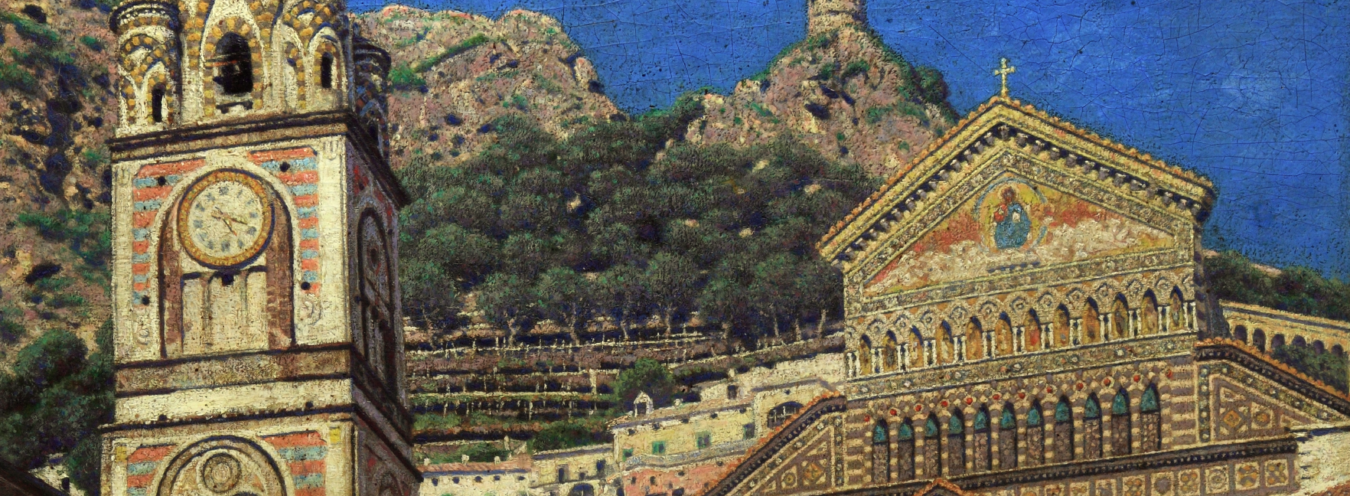
Politics as a root of reality
For Schmitt, politics is “the root of reality,”[1] the elementary characteristics of human life that cannot be eliminated from human existence and human nature. Being political is the natural state and is connected with the necessity to grasp that the human being is dangerous, capable of evil, and must resort to passion to avoid destructive boredom and malaise.[2] All attempts to swear politics off are by default utopian and are connected with the unrealistic promise of extirpating evil and establishing a trivial idyll on Earth, comprising solely of producers and consumers. This utopian pursuit pervades modern liberalism, which Schmitt and Voegelin unapologetically criticize.[3] One manifestation of this liberal-utopian aspiration was John Stuart Mill’s positivism, and, even more accurately, that of Auguste Comte.[4] Herbert Spencer promised that societies would transform from military into industrial-commercial ones, that the principle of war and struggle would be superseded by the principle of exchange and mutual support, and all that would happen thanks to the discovery of evolutionary mechanisms. According to Schmitt, this was a deceptive and fraudulent promise which deprived humans of dignity and meaningful existence.[5] As such it aroused his disgust and loathing.
Remaining in a permanent state of conflict and tension is something natural for Schmitt. This would be a somewhat Nietzschean vision, in which the feud between powers, the state of war, as well as the will to power positioning itself and looking for resistance would all determine the movement of the world. It would be an autotelic, infinite process of aligning with crisis, borderline situations. It would be a cycle of the continual return to war and the perpetual rise of conflict for the sake of conflict. Schmitt would surely agree with Nietzsche’s warning about the “last man” who just wants peace and the opportunity to indulge in small bourgeois pleasures. Both Schmitt and Nietzsche despised the human being that hid away from a full and true life.[6] This parallel would be complete if it was not for the theological element, or rather dimension, in Schmitt’s thought. According to Piotr Graczyk, Schmitt is an “apocalyptic Catholic”[7] who had come to terms with human destiny which is the fight against evil and Satan:
The human being is not a branch of the tree of nature. The human does not really have any roots and doesn’t organically rise out of existence. There is a cut between humans and their roots – the free act of God’s creation which is not explained by anything and not preceded by anything, which has no cause or measure. […] That is why the last human experience will not be the state but war. The future is not called politeia but Armageddon.[8]
Przypisy
- Voegelin shares the belief in the indispensability of politics in human life but he connects it with the more general conviction that the human society “is as a whole a little world, a cosmion, illuminated with meaning from within” (The New Science of Politics, Phoenix Books, the University of Chicago Press, Chicago & London 1952, p. 27) into which politics and all the notions, rituals and symbols connected with it enter. “The self-illumination of society through symbols is an integral part of social reality, and one may even say its essential part, for through such a symbolization the members of a society experience it as more than an accident or a convenience”; ibidem, p. 27 [editor’s note].
- Ibidem, pp. 67–72.
- On the criticism of liberalism by Schmitt see L. Strauss, “Notes on Carl Schmitt: The Concept of the Political,” in The Concept of the Political, edited and translated by George Schwab, pp. 97–122.
- See the analysis of Comte’s system as the opposite of the idea of Christ as God incarnate – E. Voegelin, From Enlightenment, p. 195–201 (chapter “Grand-Être and the fiction of Christ”).
- As opposed to Schmitt, Voegelin objects not to liberalism but to all the ideologies of the 19th and 20th centuries positioning the human being on par with God and moving the center of universalism from the sacrum to the profanum, he also places liberal progressivism among them (compare From Enlightenment, p. 137) [editor’s note].
- P. Graczyk, “Komentarz do uwagi Straussa o Schmitcie” [Commentary on Strauss’s “Notes on Carl Schmitt”], Kronos 2008, vol. 3, p. 75.
- The well established belief in the related literature that Schmitt’s thoughts were apocalyptic in nature contrasts with the reception of Voegelin’s work in which, all the apparent catastrophic threads notwithstanding, millenarian or apocalyptic features are not unequivocally recognized, compare Problem ładu…, op. cit. [editor’s note].
- Ibidem p. 77; trans. K. C.

